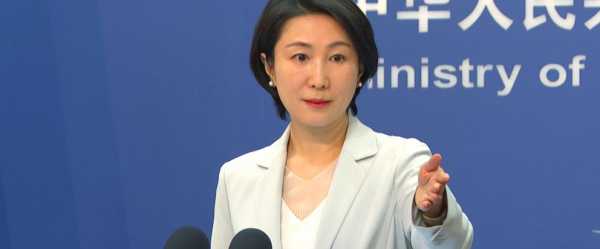
BEIJING — The Chinese government on Wednesday defended its ban on products from U.S. memory chipmaker Micron Technology Inc. in some computer systems after Washington expressed concern, adding to strains over technology and security.
The security review of Micron products was “conducted in accordance with the law," said a foreign ministry spokesperson, Mao Ning.
The Cyberspace Administration of China on Sunday said Micron products have unspecified security risks but gave no details. It banned them from computers that handle sensitive information.
That came after Washington, Japan and the Netherlands blocked Chinese access to technology to make advanced processor chips on security grounds at a time when the ruling Communist Party is threatening to attack Taiwan and is more assertive toward its other Asian neighbors.
“China’s cybersecurity review does not target specific countries or regions,” Mao said. “We do not exclude technologies and products from any country.”
Companies on both sides have been buffeted by supply disruptions and lost sales revenue.
Restrictions by Washington and its allies on access to chips and tools to make them hamper China’s efforts to develop its own chip industry. U.S. vendors have lost billions of dollars of potential sales to Chinese smartphone makers, chip foundries and other customers.
Mao complained the United States has imposed restrictions on more than 1,200 Chinese companies on security grounds “without any factual basis.” She accused Washington of misusing national security as an excuse to “unreasonably suppress Chinese companies.”
“This is economic coercion and is unacceptable,” Mao said.
The U.S. government is “engaging directly” with Beijing to “make our view clear” about the Micron ban, State Department spokesperson Matthew Miller said Monday.
“We have very serious concerns,” said Miller. Referring to the People’s Republic of China, he said, “This action appears inconsistent with the PRC’s assertions that it is open for business and committed to a transparent regulatory framework.”
Micron will cooperate with the Chinese regulator and is evaluating the ban’s impact, according to its chief financial officer, Mark Murphy.
“We remain unclear as to what security concerns exist,” Murphy said on a JP Morgan technology industry conference call. “We’ve had no complaints from customers on the security of our products.”
Micron estimates it might lose sales equivalent to a single digit percentage of total revenue, but the final figure depends on what customers and products are affected, Murphy said.
On Tuesday, Foreign Minister Qin Gang pressed his Dutch counterpart for access to chipmaking technology that has been blocked on security grounds.
China needs a machine available only from a single Dutch company, ASML Holding NV, that uses ultraviolet light to etch microscopic circuits on next-generation chips. Without that, the ruling party's efforts to develop chips for smartphones, artificial intelligence and other advanced applications are stalled.
“China has serious concerns about this,” Qin said. “We should work together to jointly protect the normal trade order between us” and "keep the global industrial and supply chains stable.”
The Dutch minister, Wopke Hoekstra, said he “shared our national security concerns” and gave no indication his government's position changed.
___
Micron Technology Inc.: www.micron.com
Sourse: abcnews.go.com






